| All Artists: Wayne Shorter Title: Adam's Apple Members Wishing: 2 Total Copies: 0 Label: Blue Note Records Release Date: 9/2/2003 Album Type: Extra tracks, Original recording remastered Genres: Jazz, Pop Styles: Modern Postbebop, Bebop Number of Discs: 1 SwapaCD Credits: 1 UPC: 724358091229 |
Search - Wayne Shorter :: Adam's Apple
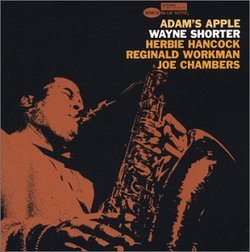 | Wayne Shorter Adam's Apple Genres: Jazz, Pop
|
Larger Image |
CD DetailsSimilarly Requested CDs
|
CD ReviewsA+ for "Adam's Apple" Michael B. Richman | Portland, Maine USA | 09/13/2003 (5 out of 5 stars) ""Adam's Apple" finds tenor saxophonist Wayne Shorter returning to a quartet setting after the avant-garde, multi-horn experiments of "The All-Seeing Eye" (see my review). Recorded during two sessions in February 1966, the album features Wayne with the rhythm trio of Herbie Hancock on piano, Reggie Workman on bass and Joe Chambers on drums. These players all knew each other well as Wayne and Herbie had been members of the Miles Davis Quintet for more than a year, not to mention their prior Blue Note collaborations. Furthermore, Wayne and Reggie had both been in the Jazz Messengers in the early 60s, and Wayne had partnered with Joe Chambers on his previous two Blue Note sessions. All this added up to a great deal of musical rapport and chemistry that translated directly to the tunes. Of Wayne's three quartet albums for Blue Note, this is arguably the best. As great as "JuJu" and "Etc" are, they have their flaws -- "JuJu" comes off sounding a little too Coltrane-like (it's hard not to when you play with both McCoy and Elvin) while "Etc" was often uneven (it did sit in the vaults for years). With "Adam's Apple," Wayne had reached the pinnacle of his style and expression in modal jazz, and shortly he would go searching for new frontiers both with Miles and on his own. But at this stage in his career he simply gets an A+ for "Adam's Apple."" Wow! Thomas Horan | Chapel Hill, NC | 12/20/2004 (5 out of 5 stars) "Even if you don't have any of his records, you're probably familiar with Wayne Shorter's warm, yet introspective saxophone sound from his work with the Jazz Messengers and Miles Davis. Indeed, despite Wayne's endearing modesty, I don't think I'm alone in feeling that his solos often outshine Miles'. Adam's Apple, Wayne's fifth album for Blue Note, is probably his most instantly enjoyable among a crop of spectacular recordings. First of all, Wayne is an imaginative and prolific composer. I rate the title track and El Gaucho among his finest tunes. Secondly, this LP has a funky swing guaranteed to set your feet dancing. It's one of those rare modal albums that's rich enough for the seasoned listener, but bops hard enough for the kids. Finally, Wayne is backed by superlative, forward-thinking musicians: Herbie Hancock, Reggie Workman, and Joe Chambers. The sound quality on this RVG edition is pristine and it boasts a terrific bonus track by Hancock. Don't wait any longer than you have to, this baby merits rush delivery! " In the crowded top tier of Wayne Shorter albums! J. Lund | SoCal, USA | 01/30/2005 (5 out of 5 stars) "As if his prior free-jazz leaning THE ALL SEEING EYE album never happened, Shorter follows up that challenging set with a set of excellent tunes that rate up there with the selections heard on such classic albums as JUJU and SPEAK NO EVIL in terms of keeping advanced concepts melodically memorable for the listener. Another quartet date (with Herbie Hancock, Reggie Workman, and Joe Chambers), several of Wayne's most renowned tunes are included, including his version of "Footprints" (also recorded with Miles Davis), "El Gaucho," the title cut, the pretty ballad "Teru," and the Coltrane-like "Chief Crazy Horse." A bonus track is "The Collector," which Davis recorded under the title "Teo's Bag." For those interested in Shorter's work, this is among the first discs to pick up."
|

 Track Listings (7) - Disc #1
Track Listings (7) - Disc #1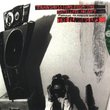
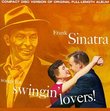
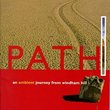
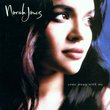
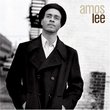
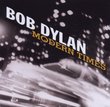

![The Music Man (1957 Original Broadway Cast) [Angel Reissue]](https://nationalbookswap.com/cd//m/02/4802/84802.jpg)
